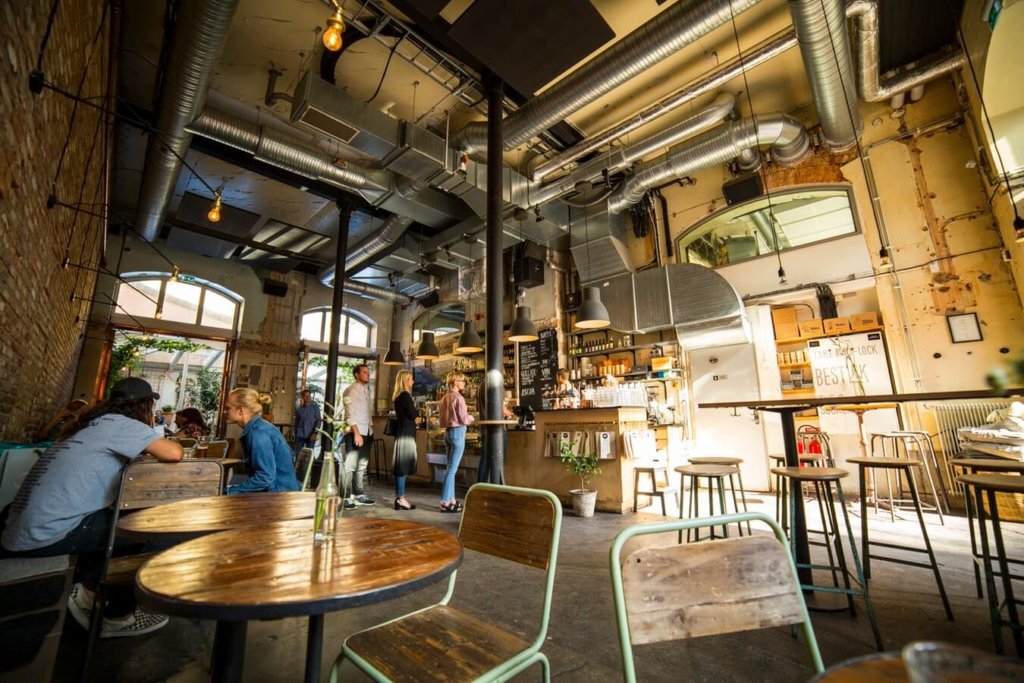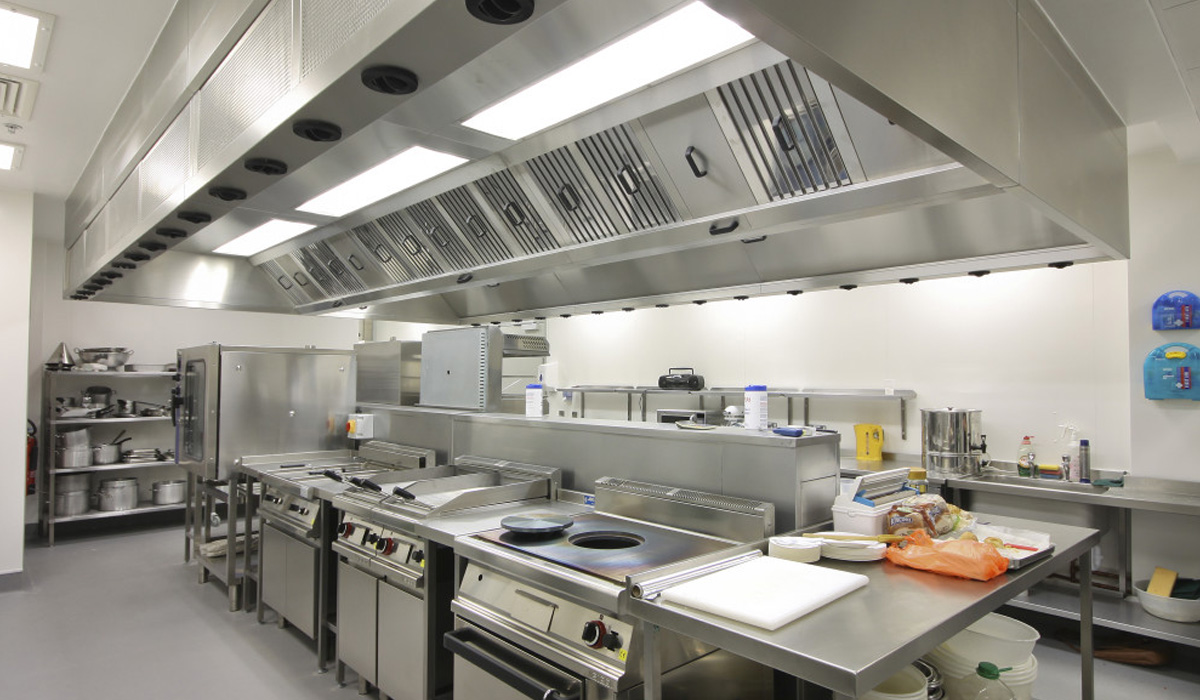Hospitality
In the hospitality sector, first impressions matter, and air quality plays a bigger role than many realise. Whether it’s a hotel, restaurant, spa, or event space, maintaining clean, fresh indoor air is key to ensuring guests feel comfortable, safe, and well cared for from the moment they arrive.
Enclosed spaces with high footfall, shared ventilation systems, and varying temperature demands can all contribute to poor indoor environment quality. Odours, humidity, carbon dioxide, and airborne pollutants can quickly build up without effective ventilation, impacting not only guest satisfaction but also energy performance and staff health. In an industry built on comfort and reputation, clean air is part of the experience.
- Expectations
- Featured Project
- Insights
Expectations
Hospitality Sector
In hospitality, you want to make sure your guests enjoy their time within your space. Yet many hotels, restaurants, and venues unknowingly suffer from stale air, inconsistent ventilation, or excessive humidity, leading to discomfort, complaints, and even negative reviews.
Hospitality spaces present unique challenges: varied occupancy levels, kitchens and washrooms, fluctuating temperatures, and the constant movement of people. Without a proactive air quality strategy, these factors can lead to musty rooms, trapped odours, or invisible health risks that affect both guests and staff.
Rather than relying on short-term fixes like air fresheners or manual ventilation tweaks, we help hospitality businesses take control with evidence-based solutions. Our air quality assessments and professional air quality monitoring devices deliver real-time data, helping you adjust airflow, reduce pollutants, and create a consistently fresh, healthy environment for your staff and guests.
No matter the environment, we offer tailored support to enhance your air quality in spaces which must met a consistently high standard. If you're looking to elevate your guests' experiences, or just ensure your staff aren't subjected to stale, poor-quality air, get in touch today or view our range of services to find out what we can do to help.
Relevant services
- HVAC Maintenance
- Fire Damper Testing
- Water Quality Testing
- TM44 Inspections
- Grease Cleaning
- Ductwork Cleaning
- IAQ Testing
- Mould Surveys

Featured Project
What happens when a Hotel forgets about its Air Quality

Objectives
London’s notoriously poor air quality makes well-maintained Air Handling Units (AHUs) vital for hotels, where clean, comfortable indoor air is key to retaining guests. When we were asked to service a high-end hotel’s AHU, we expected a routine inspection, clean, and report. Instead, we found the unit had not been properly serviced in years.
The vermin screen — the first filter to block bugs, animals, and large debris — was completely impacted, preventing any airflow. The AHU had been running continuously under these conditions, wasting electricity and risking internal damage as the system struggled to operate under abnormal strain.
Solutions
We blasted the vermin screen with compressed air, cleared the internals, replaced the particulate filters, and restarted the system. Airflow returned, and the hotel once again had clean air.
However, later that evening, our client called us again to complain that their back-of-house areas were suddenly freezing, with kitchen staff even wearing jackets to keep warm. The newly functional AHU was running at full power, no longer “compensating” for the blocked intake. Turning it off, as our client initially suggested, would have been unsafe, especially in kitchens, so we adjusted the fan speeds to maintain airflow without overcooling staff.
Results
When we treat IAQ like a box-ticking exercise just to meet compliance, issues like this arise. If the air quality within the hotel becomes so poor that people start getting sick, would you blame the contractors for doing a bad job or the hotel for not noticing or doing enough to fix it? We think this case study serves as a lesson to business and property owners: pay close attention to your air quality, or risk lazy contractors taking advantage of you and letting your air quality deteriorate.
We not only delivered a thorough service but also uncovered issues the client didn’t realise existed. The filter had been so clogged that staff didn’t even notice when it became completely blocked — proof that dangerous air quality can go unnoticed.
Now, both staff and guests enjoy cleaner, safer air and a more comfortable environment, while the hotel saves money and energy with an AHU running efficiently rather than straining against a blocked filter. Additionally, this improvement to the IAQ could potentially encourage guests to return and spend more money.
Challenges
- Blocked air intake
- High-end hotel
- Energy waste
"Hotel IAQ is notoriously poor, and the only extracts found in most hotels are usually in the bathrooms! In this case, the hotel had, at some point in time, given up paying much attention to their air quality, letting lazy contractors get away with letting their AHU deteriorate. In the end, we fixed the problem and the difference was immediately noticeable. Hopefully the lifespan of their AHU has now been extended and they should be saving some money with it running less intensely now that the blockage has been fixed."
Shaun Doran, Air Hygiene & IAQ Compliance Specialist
Wellbeing
Increased Revenue
Energy Saved
Insights
Related Insights
Discover Our Other Sectors
Hospitality FAQs
What are the impacts of poor air quality in the hospitality industry? ↓
What are the risks of poor air quality in this industry? ↓
In hospitality, where many people are involved, like in a crowded restaurant, CO2, temperature, and humidity can all rise too high for the space to remain comfortable. Kitchens without proper ventilation can produce harsh smells and temperatures that flood other areas, impacting the overall comfort level of the space. Cooking and use of cleaning chemicals can release VOCs, Particulate Matter (PM2.5, PM10), Carbon Monoxide, and other harmful gases.
Do hospitality settings have different air quality needs? ↓
Like any space, air quality should never fall below the Workplace Exposure Limits enforced by the government. Hospitality, however, has an even greater responsibility set by its customers and guests who demand an exceptionally clean, healthy, and comfortable environment. Although the legal requirements are not special, the social expectations are particularly high. In an office space you might be able to mask an unpleasant smell for a while, but in hospitality this can be the difference between someone remaining a loyal customer or leaving a negative review.
What regulations or standards apply to hospitality environments? ↓
Building Regulations - Approved Document F (Ventilation), Health and Safety at Work Act (1974), and COSHH all set legal requirements for buildings and workplaces. These are, however, not specific to hospitality as laws and legislations do not discuss hospitality separately. We implore hospitality business owners to look into guidelines set by bodies like CIBSE and the WHO to understand the difference between legal minimums (Workplace Exposure Limits) and the recommended air quality levels set by non-governmental organisations.
Do we need a full HVAC upgrade to improve air quality in our hospitality business? ↓
Not necessarily. We can assess your existing systems and recommend cost-effective improvements such as ductwork cleaning, filter upgrades, or air quality monitors. If the budget allows for it, retrofitting the HVAC systems can future-proof the space and ensure maximum effectiveness at cleaning the air, but we understand that this isn't always possible and can offer alternative solutions as well.
Concerned About IAQ?
Contact us today for expert advice and a professional survey.
Why Choose ARM?


